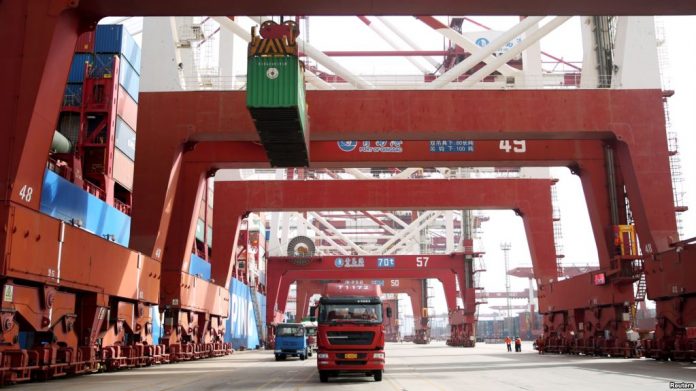ISLAMABAD: Ministry of Commerce (MoC) has finally finalised the draft for Trade Dispute Resolution Act 2018, to ensure swift and effective resolution of disputes relating to the export and import of goods and services including import and export through e-commerce.
According to the draft, a copy of which is available with Pakistan Today, the new legislation and the formation of a Dispute Resolution Commission will promote trade in Pakistan and protect all trading interests while improving Pakistan’s standing internationally.
Under the proposed law, the ministry, by creating a Trade Dispute Resolution Commission (TDRC), will also extend the scope of the Act to domestic disputes as and when deemed appropriate.
As per the draft act, the commission will consist of three members and would be constituted through a notification in the official Gazette. The ministry may increase or decrease the number of members, from time to time, as it deems appropriate. A chairman from amongst the members will be appointed and he/she shall be the chief executive of the Commission and shall be responsible, along with other members, for the swift execution of all functions and affairs of the commission.
However, before the commission can initiate dispute resolution proceedings, each dispute will be referred to the commission through a written application. In case a dispute is accepted, the concerned parties will first try and reach an amicable solution through negotiations, however, in case the parties fail to reach a solution, the commission may refer the case to High Court, Commercial Bench, based on the quantum of dispute or refer to Mediation/Conciliation, arbitration.
The commission will hold the authority to announce verdicts which would be binding by law, however, these verdicts will be appealable before the High Court. Besides, the commission will train commercial counsellors and welfare workers to resolve disputes. Moreover, the commission will seek reports from trained professionals on a bi-weekly basis.
TDRC will provide a forum for amicable dispute resolution and parties may opt for participation in such negotiations through video conferencing as well.
If negotiations fail and the claim meets the minimum threshold required for the suit to be filed in the Commercial Bench of the High Court, it will be referred there. If not, then, as per the agreement of the parties, it may be referred to: (a) mediation or conciliation; (non-binding) (b) arbitration; or (binding) (c) the TDRC may initiate its own proceedings.
According to the documents the Commission may from time to time appoint up to two experts for the purposes of resolving disputes which require the appointment of such experts if so required by the Commission; eligibility criteria and mode of appointment of these experts shall be prescribed.
The Commission shall maintain and publish a list of black-listed parties on its website, comprising of those parties who have failed to comply with the findings made by the Commission pursuant to a final determination.
The Commission may request the State Bank of Pakistan (SBP) to instruct banks to stop payments for purchases from particular websites, to enter into agreements/arrangements with its counterpart agencies abroad for enforcement of decisions; exchange lists of black-listed vendors with its counterparts and associations – local as well as international.
The Commission shall also maintain a database of “high-risk places”, being international locations with a high prevalence of disputes.
Apart from its role in resolution of international trade disputes, the TDRC will enforce its final determinations through local law enforcement agencies. Local law enforcement agencies and authorities in the federation and the provinces shall be under an obligation to provide and render full and complete assistance to the Commission as and when the secretariat may require such assistance.
























